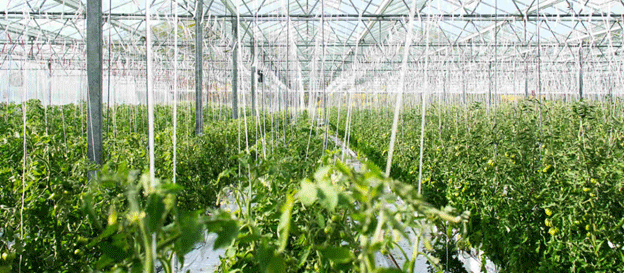In the face of global water scarcity, innovative solutions are crucial for sustainable agriculture. The Universitat Oberta de Catalunya (UOC) and the Barcelona-based company Lenium are spearheading a revolutionary project aimed at transforming greenhouse irrigation by capturing and utilizing ambient humidity. Funded by the Nuclis program, this initiative holds the potential to significantly reduce water usage in agriculture, promoting both environmental and economic sustainability.
- The SER HUMÀ Project:
The Sistema Eficiente de Riego a partir de Humedad Ambiente (SER HUMÀ) project is a three-year endeavor focused on developing a device capable of harvesting water from ambient humidity for irrigation purposes. The final year will involve real-world testing in a 250-square-meter greenhouse at the Institute of Agrifood Research and Technology (IRTA) in Cabrils. Led by Joan Melià, an expert in radiofrequency identification from UOC’s Wireless Networks (WINE) research group, the project aims to create a network of buried sensors to monitor soil moisture and optimize water use.
- Innovative Sensor Technology:
The core of this project lies in ultra-high frequency (UHF) RFID technology, similar to inventory tags used in retail. “We will work with UHF RFID devices, which communicate with specially adapted antennas,” explains Melià. The presence of water affects the performance of these antennas, enabling researchers to interpret soil moisture levels through signal properties such as intensity and phase, frequency, and reading channel. This data, processed by specialized software, provides precise and economical monitoring of soil conditions.
One of the significant advantages of these sensors is their passive operation, drawing energy from the RFID reader’s radio waves, which eliminates the need for batteries. A few antennas can power dozens of these low-cost, reusable sensors, making widespread implementation feasible and cost-effective.
- Efficient Water Use and Adaptability:
Effective control of soil moisture is essential, given that the water obtained through dehumidification will be limited. The project’s irrigation system will employ drip irrigation, with doses calculated based on plants’ evaporative demand and soil water content as detected by the sensors. The ultimate goal is to use water as efficiently as possible, minimizing waste.
Despite being tailored to a Mediterranean climate, the SER HUMÀ project has the potential for broader applications. Researchers believe that if successful, the system can be adapted to other regions with relatively humid climates. The validation phase, beginning next spring, will involve testing crops such as tomatoes, zucchini, and beans, comparing UOC-developed sensors at various soil depths with commercial alternatives.
- Sustainability and Future Prospects:
By spring, the project aims to validate its technology with real crop trials, determining the optimal placement for humidity collectors and ensuring sufficient water supply. This phase will assess the system’s efficiency in producing crops relative to the water used, aiming for near self-sufficiency and sustainability.
The anticipated outcome is a significant step towards more sustainable greenhouse agriculture, potentially setting a new standard for water use efficiency in the industry. If the SER HUMÀ project proves successful, it could lead to widespread adoption, transforming agricultural practices in humid regions and contributing to global sustainability efforts.
The SER HUMÀ project exemplifies the innovative spirit necessary to address the pressing challenge of water scarcity in agriculture. By leveraging ambient humidity and advanced sensor technology, this initiative offers a promising pathway to more sustainable and efficient greenhouse farming. As the project progresses to real-world testing, its potential for broad application and significant impact on the agricultural industry becomes increasingly evident.












